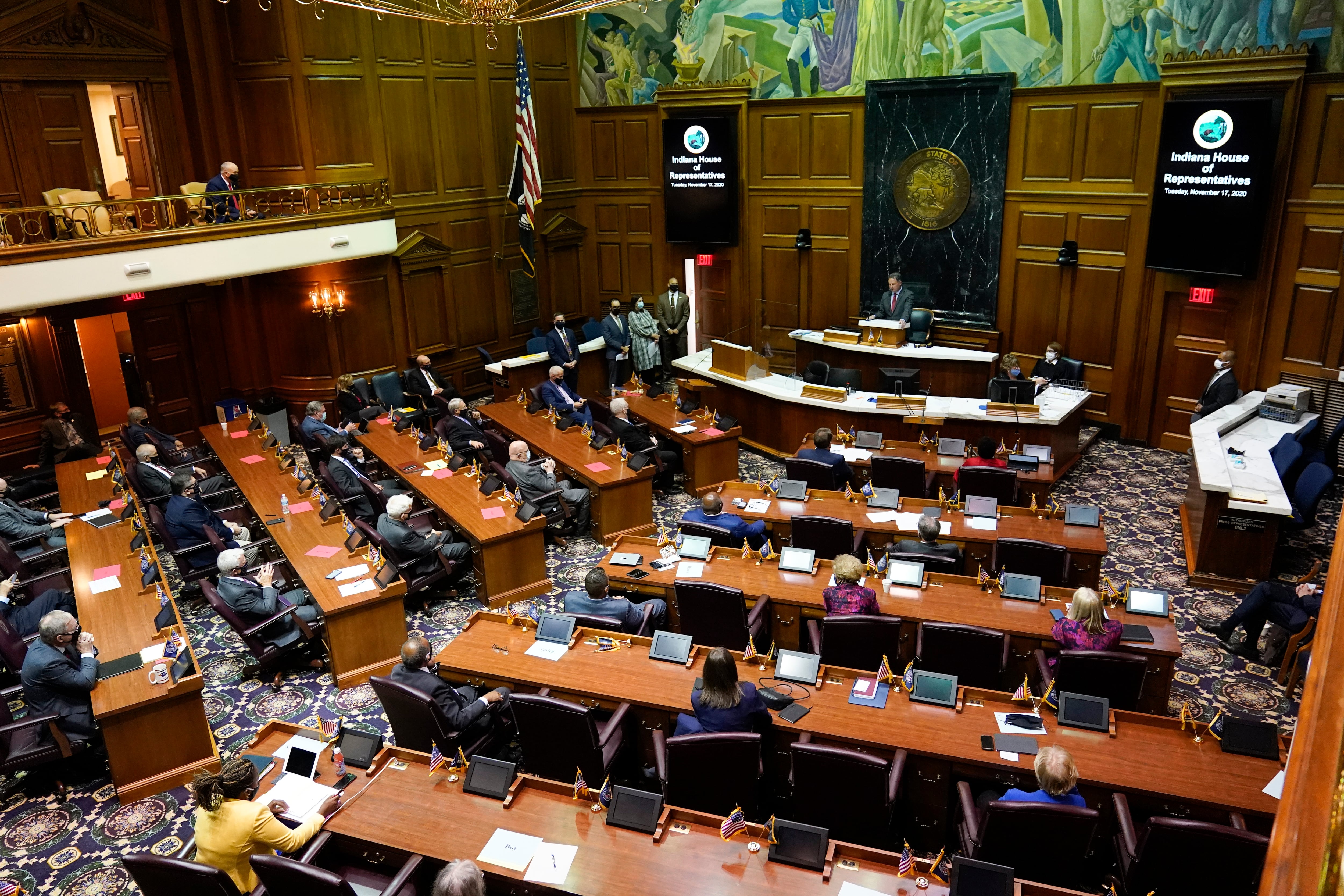Indiana lawmakers voted Tuesday to overrule Gov. Eric Holcomb and ban transgender girls from playing in girls K-12 sports.
The Republican supermajority in both chambers of the Indiana legislature voted to overturn Holcomb’s March veto of House Enrolled Act 1041, despite objections from Holcomb, a fellow Republican, that the law’s lack of details left schools open to litigation.
The ACLU of Indiana announced immediately after the vote that it had filed a lawsuit challenging the new law on behalf of a 10-year-old transgender girl at Indianapolis Public Schools who plays on an all-girls softball team.
Attorney General Todd Rokita has vocally supported the law and promised to defend it.
The veto was overridden largely on party lines, 67-28 in the House and 32-15 in the Senate, in a special session expressly called to do so.
HEA 1041 affects only transgender girls and girls youth sports. It doesn’t prevent transgender boys from playing on boys sports teams, nor does it affect college sports.
The Indiana High School Athletic Association previously questioned the necessity of the bill, citing its existing procedure for transgender student athletes to request to play on a team. In 10 years, the association has had only one case of a transgender girl asking to play on a girls team, and the student dropped the case.
“We’re looking for a solution to a problem that doesn’t even exist,” said Sen. Lonnie Randolph (D-East Chicago).
But Republican lawmakers said the law was necessary — whether it affected one case, or 100 — to preserve girls’ access to athletics and scholarships.
“The purpose of this bill is to maintain fair competition in girls sports now and in the future,” said Rep. Michelle Davis (R- Greenwood), the author of the bill. “Today your vote will send a clear message that Indiana will protect the integrity of female sports.”
It requires schools to designate all teams as either mens, womens or co-educational, and creates a grievance procedure for students and parents. If a school permits a transgender girl to compete on a girls team, the law will allow other students to sue the district for being “deprived of an athletic opportunity.”
In a lengthy statement explaining his March veto, Holcomb said the “wide-open” nature of the grievance process would create confusion and inconsistency in schools throughout the state. He cited lawsuits over similar laws in other states that have already halted the laws on equal protection grounds.
Republican governors in other states have vetoed similar bills, including in Utah and North Dakota. In those cases, state legislatures also overturned the vetoes.
On Tuesday, Democratic senators passionately opposed the bill, while the ACLU of Indiana rallied at the statehouse prior to the vote.
“It makes no sense to me that we’ve assembled today to just double down on being hateful and discriminatory,” said Sen. Shelli Yoder (D-Bloomington), asking the legislature to instead work on suspending the gas tax, or offering solutions to the child care crisis.
“Instead, we are spending our time to make children feel bad about themselves.”
HEA 1041 takes effect July 1.
Aleksandra Appleton covers Indiana education policy and writes about K-12 schools across the state. Contact her at aappleton@chalkbeat.org.





